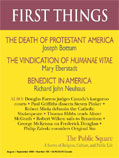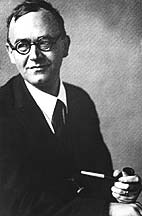The following may be of interest to some. It can be of little doubt that the language used in the Trinitarian formulas of the 4th century is foreign to that of the New Testament. Thus, the doctrine of the Trinity is the example par excellence of a development of doctrine. If the doctrine of the Trinity (as we know it) was not part of the explicit teaching of the early Church, why, then, is not this doctrine open for serious debate like many other developments of doctrine?
Emil Brunner, in Volume 1 of his Dogmatics (Westminster, 1950), addresses the question by making a distinction between the proclamation of the early Church (kerygma) and the subsequent theological reflection upon that proclamation. For Brunner, one of the roles of theology is to safeguard the revealed truths contained within the kerygma. Thus the principle of sola scriptura is maintained while allowing for a developement of doctrine, in that the doctrine is derived by reflection upon the earliest witness to the kerygma, the Scriptures.
Certainly, it cannot be denied that not only the word “Trinity”, but even the explicit idea of the Trinity is absent from the apostolic witness to the faith; it is equally certain and incontestable that the best theological tradition, with one accord, clearly points to the Trinity as its centre. However, there is a third point to be noted, namely, that the re-discovery of the New Testament message at the Reformation did not re-vitalize this particular theological doctrine; the fact is, the Reformers did not alter this fundamental dogma of the ancient Church, but rather, so to speak, “by-passed” it, than made it the subject of their own theological reflection. The statement of Melanchthon, “Mysteria divinitas rectius adoraverimus quam vestigaveriums“, is characteristic of this attitude. Calvin expressed himself in the same way; he regards the doctrine of the Trinity from the following point of view only; namely, that through its conceptions, which differ from those of the Bible, the opponent of the divinity of Christ – who is the enemy of Christian Faith – is forced to throw off his disguise, and to fight in the open, instead of concealing his hostility under a cloak of Christianity.
How are we to explain this strange situation? Here I anticipate the result of the following enquiry, and state it in the form of a thesis: The ecclesiastical doctrine of the Trinity, established by the dogma of the ancient Church, is not a Biblical kerygma, therefore it is not the kerygma of the Church, but it is a theological doctrine which defends the central faith of the Bible and of the Church. Hence it does not belong to the sphere of the Church’s message, but it belongs to the sphere of theology; in this sphere it is the work of the Church to test and examine its message, in the light of the Word of God given to the Church. Certainly in this process of theological reflection the doctrine of the Trinity is central.
 First, my dear Joseph Pearce. Back in July I did
First, my dear Joseph Pearce. Back in July I did 

